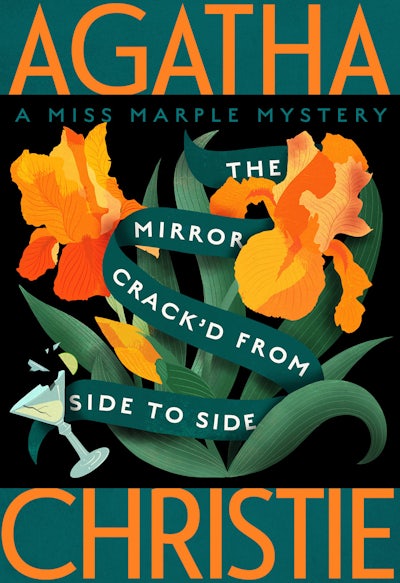The Mirror Crack'd from Side to Side

One minute, silly Heather Badcock had been gabbling on at her movie idol, the glamorous Marina Gregg. The next, Heather suffered a massive seizure. But for whom was the deadly poison really intended?
Marina’s frozen expression suggested she had witnessed something horrific. But, while others searched for material evidence, Jane Marple conducted a very different investigation – into human nature.
She had a great power of love and hate but no stability. That's what's so sad for anyone, to be born with no stability.
More about this story
The last of Agatha Christie classic English village mysteries, St Mary Mead is no longer what it once was. The 1960s see a widowed Dolly Bantry (of The Body in the Library) forced to sell Gossington Hall, which is eventually purchased by a rich movie star who brings a deadly mix of glamour and torment into the now developing community. Observing the social changes following the Second World War, Agatha Christie and Miss Marple do what they've always done - solve the mystery through the habits of the people involve and the village they live in.
Agatha Christie had long been fascinated by the tastes of new 'developed' houses on the estates around her home in Wallingford, Oxfordshire and she saw an opportunity to explore these in The Mirror Crack'd. The title came from the poem The Lady of Shalott, by Tennyson.
The last of the true English village mysteries in Christie's output, and one of the best of her later books.
In 1980 Hollywood adapted the novel into a film starring Angela Lansbury as Miss Marple alongside Elizabeth Taylor as the beautiful Marina Gregg. They shortened the title to The Mirror Crack’d. In 1992 The Mirror Crack'd from Side to Side was the last Miss Marple novel to be adapted by the BBC and star Joan Hickson in the title role. It wasn't until 2009 the novel was again adapted, this time with Julia McKenzie as Miss Marple, Joanna Lumley reprising her role as Dolly Bantry and Lindsay Duncan as Marina Gregg. June Whitfield starred as Miss Marple in the August 1998 broadcast of BBC Radio 4's dramatisation. Film director and screenwriter Rituparno Ghosh created a Bengali language version of Christie's story, titled Subho Mahurat (2003), which reset the story in the film industry of Kolkata (Calcutta).


 UK
UK 


